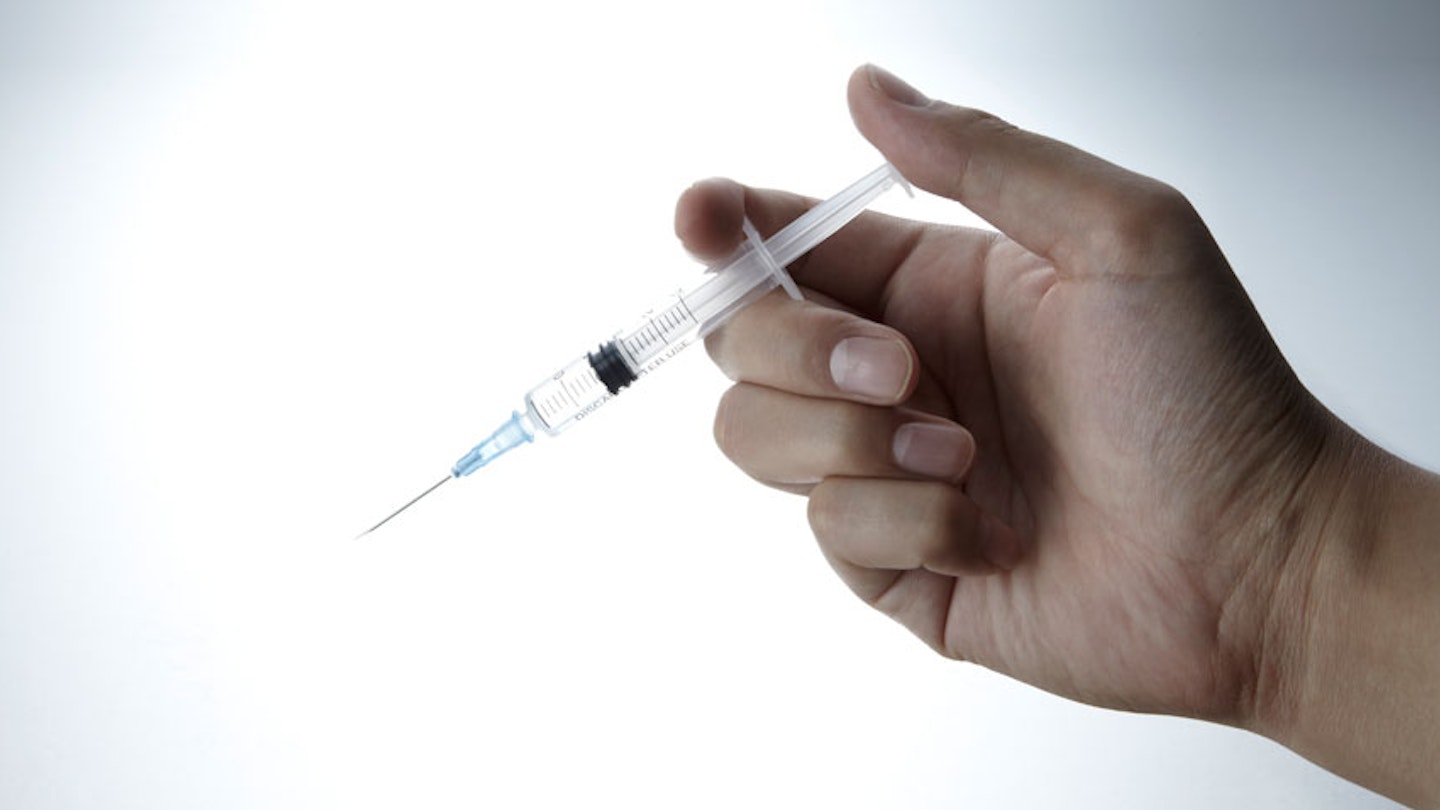About two years ago, my doctor suggested I change my pill. They wanted to move everyone onto a cheaper, Tesco's Own type version of the oral contraceptive, insisting it was just the same, just as good. So I switched. I then spent the next six months having a constant period, my moods were all over the place, and I had thrumming, throbbing headaches that lasted for ten days at a time. It was totally, totally miserable. Each time I went back to the doctor to beg for help, they told me it was 'normal' and to 'give it a bit longer' for my body to get used to the new pill. When I cried, they just gave me extra strong prescription painkillers for my headaches.
In the end I couldn't stand it any longer and took myself off it. And then spent the next six months trying to get back on my original pill. But I know all too well that what I went through is a fairytale compared to many of my friends’ lifetime of issues dealing with contraceptives. I don’t know any woman who hasn’t had some kind of shitty problem trying to use the pill, the injection, or the coil.
But hey, we couldn’t expect a man to put up with any of that, could we?
Last Thursday it was announced that a major research project, co-sponsored by the United Nations, trialling a new hormonal birth control injection for men, has just been halted because of ‘intolerable side effects’. The injection of testosterone, which essentially tricks the brain into thinking the body is getting enough, and shuts down production of sperm, had a 96% success rate – more reliable than condoms. But the project has been shut down, after 20 of the 320 men involved in the test dropped out, citing side effects such as ‘injection site pain, muscle pain, increased libido, depression and acne.’
So, not death then? Not death by Deep Vein Thrombosis, stroke, breast cancer, or cervical cancer? Because that’s what we hear as potential risks and side effects from our doctor every time we go get a repeat prescription of our pill.
And that’s on top of the more common list of ‘minor’ side effects, which are apparently fine for women to experience, such as mood swings, breast pain, fungal infections, cystitis, migraines, nausea, stomach problems, diarrhoea, irregular bleeding, acne, hair loss, weight gain, high or low blood pressure, a lower libido – among others. And yes, depression. Just last month, a major study found a link between the pill and depression. And every woman I know rolled her eyes and said duh.
But a small risk of depression or acne cannot be inflicted on men, can it? One alarmed doctor interviewed by CNN about the possible use of male contraceptive said, ‘We're talking about young people, and the scary thing is messing around with young people's hormones, and that can be detrimental for the rest of their life, right?’
Um, HELLO. CAN YOU NOT SEE US DOWN HERE? Women have been told since 1962 that it was worth messing with our hormones for the greater good of not getting knocked up. That all those disturbing side effects were an acceptable price to pay, because of what it meant for us. It’s sad, because in so many ways, the pill was a feminist revolution – we finally got to take control of our bodies and make decisions about our own fertility. But it’s 2016, guys! It’s time men started fucking up their hormones taking responsibility for contraceptives too.
This male injection seems like the ideal solution, and while I have sympathy for those who experienced side effects, it was only a tiny percentage of the testers. In fact, more than 75% of the participants said they’d want to keep taking it. Because, not only did it work at preventing pregnancy, but it actually made them feel good. A shot of testosterone is known to give you energy, build muscle mass, help with your mental concentration, and aid with weight loss.
Imagine if our pill did all that and the side effects were not possible death? Doesn’t that sound lovely?
Unfortunately, this news is not so much news. We already know that medicine is biased against women. Earlier this year it was revealed that women in acute pain are left to suffer for longer in hospitals and are regularly given less time than male patients in hospitals, because male complaints are seen as more ‘authoritative and important.’ Clinical studies have found that doctors are more likely to think women’s pain is an emotional issue rather than physical (even when presented with tests that literally SHOW their pain is real), and women are more likely to be misdiagnosed with mental health problems. And we know most clinical trials around disease and new medicine exclusively work with male test subjects, despite women’s bodies reacting differently to men’s.
Contraception is not a ‘women’s issue’ and should not be treated as such. It’s disappointing that this injection, which is clearly already so effective, won’t be made widely available. But maybe this is the reminder we need that contraceptives – and attitudes – need to change. Instead of spending millions transforming an injection so that men don’t have to risk acne, maybe we need to spend some of that money giving female contraception another look. Because it’s not okay that we have to take our life in our hands every time we get a repeat prescription.
SEE MORE: Ched Evans' verdict doesn't make him morally innocent
